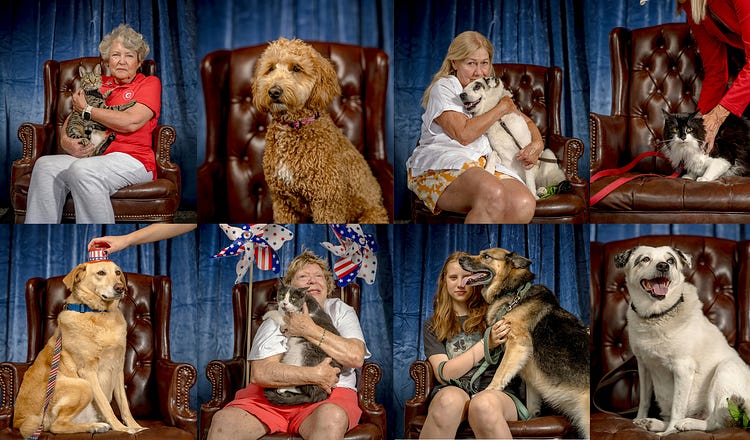In This Michigan Town, the Mayor Was a Dog. Now, They’ve Elected a Horse

Welcome to Omena’s triennial animal election. Above (L to R) Kanda McKee holds Porsche McKee, the deputy vice mayor, Schatzi Putnam, and Rosie Disch, the incumbent mayor of Omena. (Nic Antaya for The Free Press)
A small town has never elected a mayor with opposable thumbs. But is it ready for a new kind of four-legged leader? Eric Spitznagel reports from Omena, Michigan.
250
On July 20 in Omena, a small town in the “little finger” of northern Michigan, a crowd of about a hundred locals gathered in a church parking lot for the inauguration of their new mayor. A brass band played “The Stars and Stripes Forever” as Sally Viskochil, president of the local historical society, walked across the patriotically festooned stage to ma…
Continue Reading The Free Press
To support our journalism, and unlock all of our investigative stories and provocative commentary about the world as it actually is, subscribe below.
$8.33/month
Billed as $100 yearly
$10/month
Billed as $10 monthly
Already have an account?
Sign In

